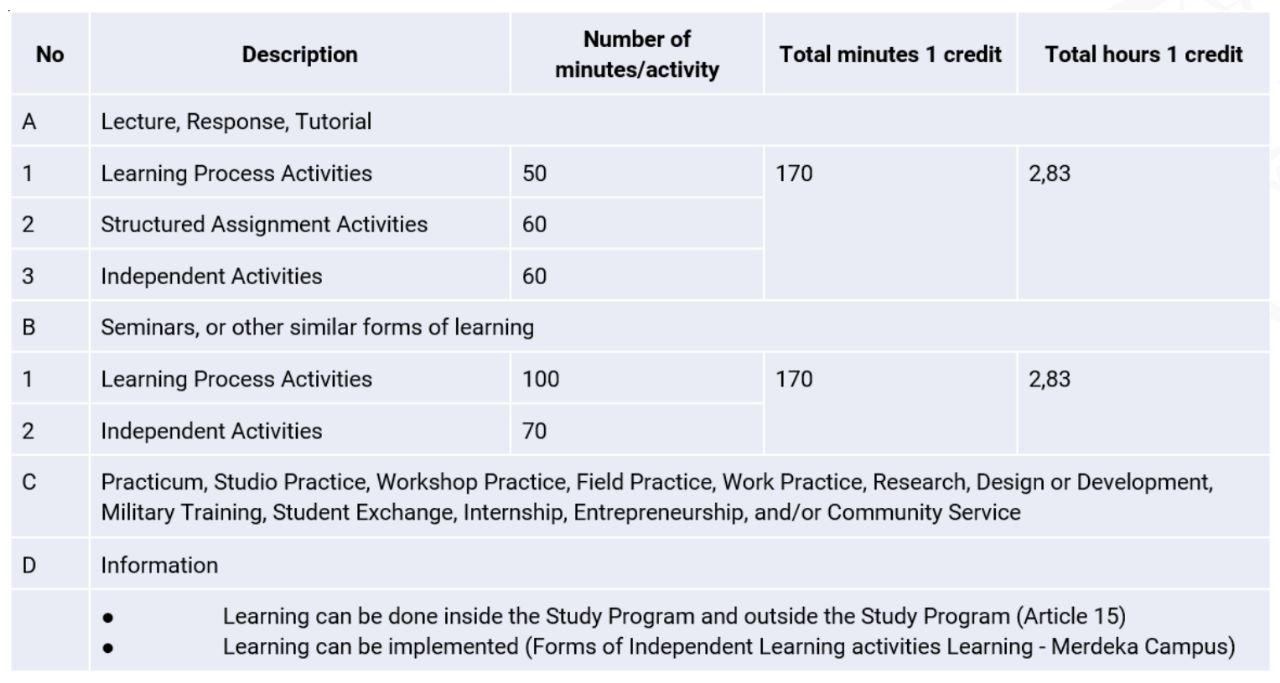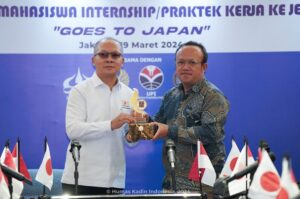- ABOUTAbout UsCollaborationInternational ProgramStudy Indonesia Program (SIP)Abroad Internship Program (AIP)Summer Course ProgramDouble DegreeEnrichment ProgramInternshipHumanitarian ProjectIndependent Study of Project
- ACADEMICS
- RESEARCH

- Information
- AdmissionsUndergraduate ProgramUndergradute SchoolarshipPostgraduate ProgramPostgraduate Schoolarship
EN
Home » Academic » Faculty of Engineering, Computer and Design (FECD) » Electrical Engineering
Electrical Engineering
- Overview
- Vision & Mission
- Career
- Curriculum
- News
Overview
Along with the development of science and technology, nowadays the field of Electrical Engineering has become very important to be mastered as the basis and central for the development of other related branches of science. Thus, the need for electrical experts worldwide is very high both in companies, industry and government. The Bachelor of Electrical Engineering Study Program at Nusa Putra University was established in 2018 and is the only study program in the Sukabumi-Indonesia region that provides higher education in the field of Electrical Engineering including scientific mastery in the field of Strong Current including power electricity and renewable energy and the field of Weak Current covering Robotics and the Internet of Things (IoT).
Vision
To become an excellent Electrical Study Program with international qualifications by 2045 in the provision of education, research and community service in the field of Electrical Engineering to produce graduates who are intellectual, religious, innovative and globally competitive.
Mission
- Advancing science and technology through superior and high-quality education, teaching and learning in the field of Electrical Engineering Science.
- Advancing science and technology, through study, research, publication and patenting of superior and high-quality research results in the field of Electrical Engineering Science.
- Advancing science and technology, which can answer superior and high-quality problems and challenges of society in the field of Electrical Engineering Science
- Develop a strong and innovative organization in the Electrical Engineering Study Program by utilizing the potential of resources optimally so that they can be fair in the intellectual life of the nation and state.
- Encouraging the growth of the ability to master science and technology in the fields of Electricity, Renewable Energy, Robotics and the Internet of Things in Indonesia for the sake of creating national independence.
Career Prospect of Graduates
After completing the Electrical Engineering Bachelor Program, graduates can have a career as: Power Electrical Engineer, Project Engineer, Control Engineer, Automation Engineer, Software Engineer/Developer, System Engineer, Hardware Design Engineer, Telecom Engineer, System Analyst, IOT Engineer, Robotics Engineer, Teacher & Researcher / Academician, BUMN Worker/Expertise, Government Worker/Expertise, Technopreneurship
Graduate Profile (GP)
The graduates profile of electrical engineering is to become professional practitioners, technopreneurs, and research academics in the field of electrical engineering
| Semester | Kode | Nama Mata Kuliah (In) | Course Name (Eng) | SKS | ECTS | Total | |
| SKS | ECTS | ||||||
| WN10001 | Pendidikan Pancasila | Pancasila Education | 2 | 3,2 | |||
| WU11001 | Bahasa Inggris Akademik | English for Academics | 2 | 3,2 | |||
| EL11001 | Aljabar Linear | Linear Algebra | 3 | 4,8 | |||
| 1 | EL11002 | Kalkulus | Calculus | 3 | 4,8 | 18 | 28.8 |
| EL11003 | Matematika Diskrit | Discrete mathematics | 3 | 4,8 | |||
| EL11004 | Fisika Mekanika dan Panas | Physics of Mechanics and Heat | 3 | 4,8 | |||
| EL11011 | Pengantar Teknik Elektro | Introduction to Electrical Engineering | 2 | 3,2 | |||
| WN10002 | Pendidikan Kewarganegaraan | Civic Education | 2 | 3,2 | |||
| WU12002 | Bahasa Inggris Profesi | English for Profession | 2 | 3,2 | |||
| WU10003 | Kenusaputraan | Kenusaputraan | 1 | 1,6 | |||
| EL12005 | Persamaan Diferensial | Differential Equations | 3 | 4,8 | |||
| 2 | EL12006 | Fisika Listrik, Gelombang dan Cahaya | Physics of Electricity, Waves and Light | 3 | 4,8 | 20 | 32 |
| EL12012 | Pengantar Analisis Rangkaian | Introduction to Network Analysis | 3 | 4,8 | |||
| EL12013 | Algoritma dan Pemrograman | Algorithms and Programming | 3 | 4,8 | |||
| EL12014 | Sistem Digital | Digital System | 3 | 4,8 | |||
| WN20003 | Bahasa Indonesia dan Budaya | Indonesian Language and Culture | 2 | 3,2 | |||
| EL21007 | Kimia | Chemistry | 3 | 4,8 | |||
| EL21008 | Probabilitas dan Statistika | Probability and Statistics | 3 | 4,8 | |||
| 3 | EL21009 | Variabel Kompleks | Complex Variables | 3 | 4,8 | 20 | 32 |
| EL21015 | Sinyal dan Sistem | Signals and Systems | 3 | 4,8 | |||
| EL21016 | Rangkaian Listrik | Electrical circuits | 3 | 4,8 | |||
| EL21017 | Dasar Elektronika | Basic Electronics | 3 | 4,8 | |||
| WN20004 | Agama dan Etika | Religion and Ethics | 2 | 3,2 | |||
| EL22010 | Metode Numerik | Numerical Method | 3 | 4,8 | |||
| EL22018 | Material Teknik Elektro | Electrical Engineering Materials | 3 | 4,8 | |||
| EL22019 | Elektromagnetik | Electromagnetic Field | 3 | 4,8 | |||
| 4 | EL22020 | Sistem Pengukuran dan Instrumentasi | Measurement and Instrumentation Systems | 3 | 4,8 | 23 | 36.8 |
| EL22021 | Teknik Sistem Kendali | Control System Engineering | 3 | 4,8 | |||
| EL22022 | Teknik Sistem Tenaga Listrik | Electrical Power System Engineering | 3 | 4,8 | |||
| EL22023 | Teknik Sistem Telekomunikasi | Telecommunication SystemsEngineering | 3 | 4,8 | |||
| EL31024 | K3, Etika Profesi, dan Profesional | K3, Professional and ProfessionalEthics | 3 | 4,8 | |||
| EL31025 | Metodologi Penelitian | Research methodology | 3 | 3,2 | |||
| EL31026 | Gambar Teknik Elektro | Electrical Engineering Drawings | 3 | 3,2 | |||
| 5 | EL31027 | Kecerdasan Buatan | Artificial intelligence | 3 | 4,8 | 23 | 36,8 |
| EL31028 | Desain Sistem Mikroprosesor | Microprocessor System Design | 3 | 4,8 | |||
| WU30004 | Praktek Kerja Lapangan (PKL) | Work in Practice | 2 | 3,2 | |||
| - | MK Pilihan: Inti Peminatan | Specialization course | 6 | 9,6 | |||
| FT32001 | Kewirausahaan | Entrepreneurship | 2 | 3.2 | |||
| 6 | WU30005 | Kuliah Kerja Nyata (KKN) | Community Service | 2 | 3.2 | 19-24 | 30,4-38,4 |
| - | MK Pilihan I: MBKM/SCP /Pendalaman | Elective Course I: MBKM/ SCP /In- Depth | 15-20 | 24-32 | |||
| FT41002 | Filsafat Ilmu | Phylosophy of Science | 2 | 3.2 | 17-22 | 27,2-35,2 | |
| 7 | - | MK Pilihan II: MBKM/SCP /Pendalaman | Elective Course II: MBKM/ SCP/In- Depth | 15-20 | 24 -32 | ||
| 8 | EL40029 | Skripsi | Thesis | 6 | 9,6 | 6 | 9.6 |
| Jumlah | 146-156 | 233,2-249,6 | |||||
Conversion from SKS to European Credit Transfer System (ECTS)

1 credit is equivalent to 170 minutes or 2.83 hours. Each semester consists of 14 meetings. It means, a total of 39.62 hours per semester is obtained. The provision of 1 ECTS is equivalent to 25 hours. To get a Bachelor’s degree, a student must complete a minimum of 144 credits, that is equivalent to 228.21 ECTS. According to European Standard, 3 years lectures program is equivalent to 180 ECTS, and 4 years lecture program is equivalent to 240 ECTS. The number of lectures at FECD-UNSP is 228.21 ECTS, meaning that it meets European standards.
The Semester Credit Unit load for each course is determined in accordance with the learning process (lecture characteristics) carried out. One semester consists of 14 learning sessions/meetings (14 weeks) and two examinations; Mid-Semester Examination, and End-Semester Examination (UAS).
 News
News
- Informasi Akademik
- Demi Hadapi Dunia Kerja, Program Studi Teknik Elektro Adakan Praktis Mengajar
- Mahasiswa Elektro Universitas Nusa Putra Sukabumi Dikenalkan Aplikasi College
- Pelaksanaan Kegiatan Sukabumi Robotic Competition 2022
- Guna Mengembangkan SDM di Bidang Pemanfaatan Energi, FKHMEI Gelar Seminar Nasional
- Dihadiri Mahasiswa dari Berbagai Universitas Dalam Negri, Berikut Tanggapan Peserta Seminar FKHMEI
- SOTR Ala Mahasiswa Teknik Elektro Nusa Putra, Bagikan 200 Paket Makanan Sahur
- Mahasiswa Teknik Elektro Nusa Putra Terangi Desa di Sukabumi dengan Solar Panel
- Mahasiswa Teknik Elektro Universitas Nusa Putra Raih Bronze Medal AISEEF 2022
- Simak, Tujuh Prospek Kerja Kuliah Jurusan Teknik Elektro!



